Bill Shorten quits politics to take $1m-plus university vice-chancellor job
Bill Shorten will recuse himself from cabinet deliberations and decisions impacting the higher education sector ahead of quitting politics in February for a university job paying $1.1m.
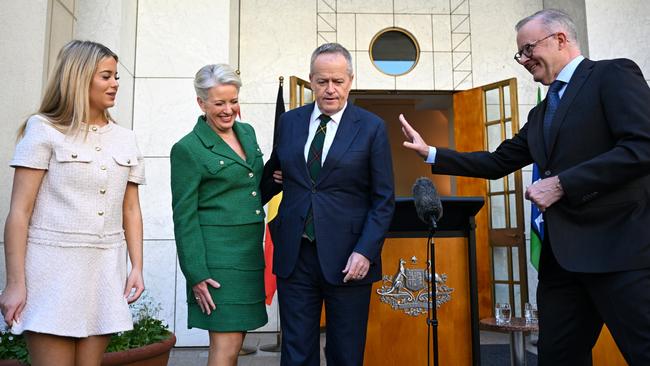
Bill Shorten will recuse himself from cabinet deliberations and decisions impacting the higher education sector ahead of quitting politics in February for a university job paying almost $1.1m, amid concerns over conflicts of interest.
After the former Labor leader announced he was ending his 17-year parliamentary career, Anthony Albanese on Thursday said he would allow the NDIS and Government Services Minister to remain in cabinet despite his long-time political rival accepting the role of University of Canberra vice-chancellor.
Senior Coalition frontbenchers have raised questions over whether the Prime Minister had sought formal advice before deciding to keep Mr Shorten in his cabinet room for another five months.
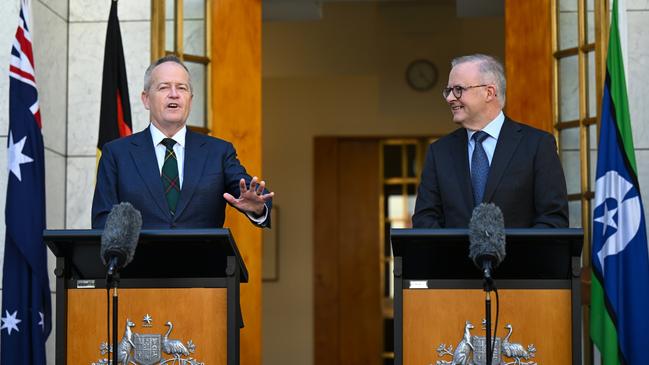
Following the Albanese government’s contentious decision last month to impose a cap on international students, sparking tensions with university chiefs, Mr Shorten has agreed to recuse himself from higher education matters, which often intersect with other policy areas such as migration, skills and housing.
Mr Shorten accepted his new job on Wednesday afternoon after the UC council led by chancellor Lisa Paul – who co-chaired the Albanese government’s NDIS review – endorsed the former Australian Workers Union national secretary as its next vice-chancellor.
The Australian understands that despite mulling over his political future since last summer, Mr Shorten did not submit a formal application for the UC job until August 21, and was interviewed on August 23. Once informed he had been appointed, Mr Shorten told his family and the Prime Minister.
Mr Albanese, who was made aware months ago that Mr Shorten may not run in the 2025 election, is understood to be confident that allowing the NDIS Minister to remain in cabinet will not breach ministerial guidelines.
“All ministers are expected to abide by the ministerial mode of conduct. The ministerial code of conduct and the cabinet handbook set out the approach to declaring and managing potential conflicts,” a government spokeswoman said.
While Mr Shorten remains in cabinet until his departure, Linda Burney and Brendan O’Connor moved to the backbench in July after announcing their political retirements.
Former health minister Greg Hunt remained in cabinet after alerting Scott Morrison he would retire at the 2022 election but did not pursue other jobs while in the role.
Deputy Opposition Leader Sussan Ley said “it is important that the Prime Minister is transparent” about the steps he has taken to ensure the ministerial code of conduct is upheld.
“Whilst we all wish Bill Shorten well, there are legitimate questions that have been raised about what steps Anthony Albanese has taken to satisfy himself that the arrangements and timelines announced (on Thursday) are compliant with the ministerial code of conduct,” Ms Ley said.
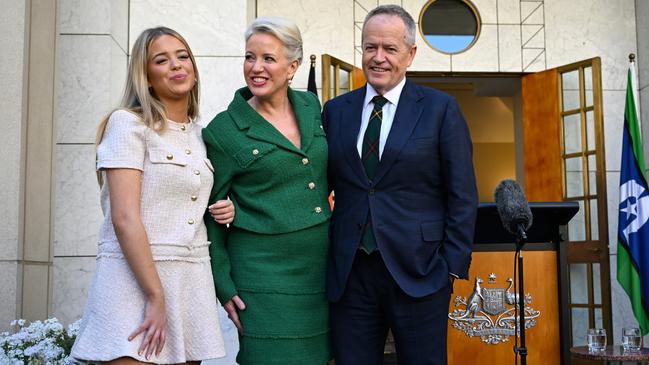
Asked about his views on the government’s cuts to international student numbers, capping the foreign student intake to 270,000 next year, Mr Shorten on Thursday said as a current member of cabinet: “I support the government’s propositions.”
“And, you know, in February then I’ll be doing the job at the University of Canberra. But I understand clearly my obligation to the people of Maribyrnong, to people in the portfolios I serve … I’m supporting the government’s changes and that is as it should be,” he said.
Standing alongside Mr Albanese in the Prime Minister's courtyard, with wife Chloe and daughter Clementine watching on, Mr Shorten described his election-losing 2016 and 2019 policy manifestos as “bold and audacious”.
Mr Shorten, who led the ALP from 2013-19, said he was “proud of the fact that we took policies to the people where we were honest and upfront”, but conceded his proposed changes to negative gearing, franking credits and capital gains tax were rejected by voters.
“In terms of the tax reform propositions (taken to the 2019 election), the reality is that the verdict of the people was that they weren’t ready for that,” he said.
“And where we’re going, by focusing on supply, focusing on building more housing, I think is the sensible, realistic proposition which brings people together and we’ve got a very ambitious program which we’re rolling out.”
Mr Albanese, who lost a leadership vote to Mr Shorten following Tony Abbott’s landslide 2013 election victory, said “it is a measure of Bill’s character that he channelled the disappointment of 2019 into fighting for justice for the victims of Robodebt”.
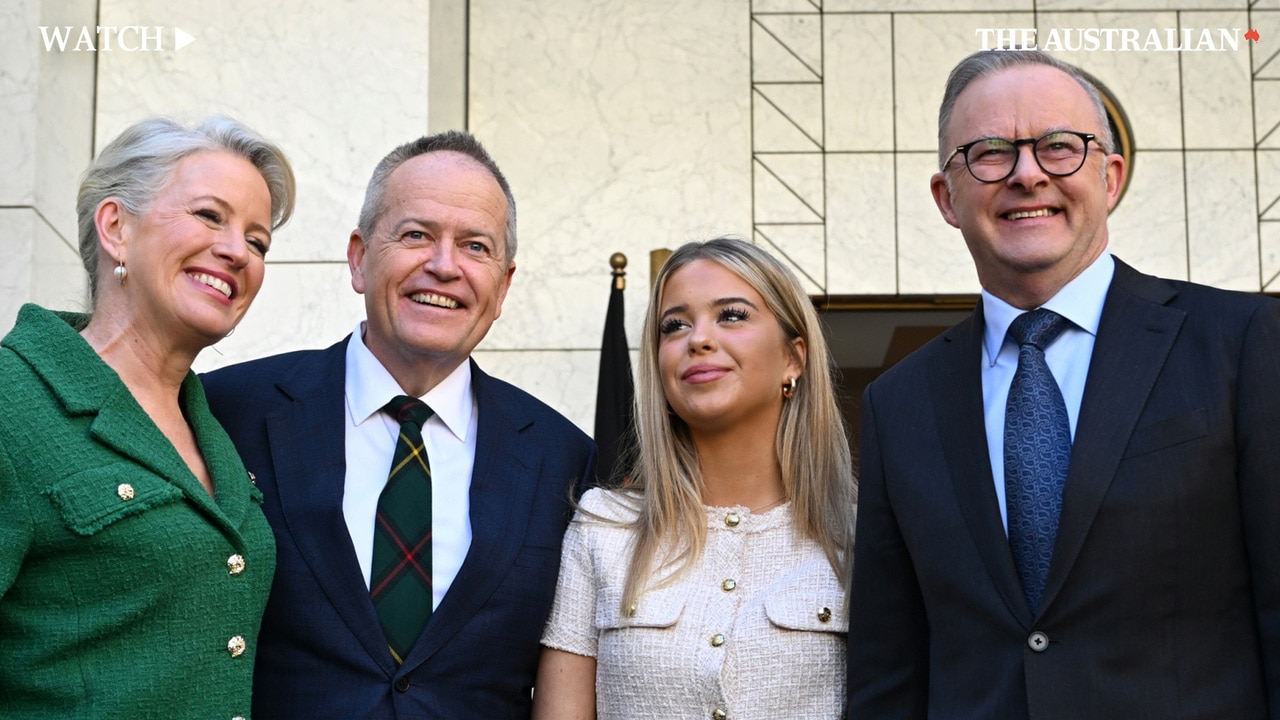
Mr Albanese indicated that Mr Shorten’s Melbourne seat of Maribyrnong would remain vacant until a likely May election. “I want to make it clear that I’ve asked Bill to remain in cabinet until he departs in February because he and I agree there is important work still to be done to put the National Disability Insurance Scheme on a sustainable footing,” Mr Albanese said.
ALP sources said Mr Albanese could shift Jason Clare or Amanda Rishworth into the NDIS portfolio. Another option could be absorbing NDIS into Mark Butler’s Health and Aged Care ministry with a junior minister assisting. Mr Albanese may also put in place “acting arrangements” between February and a likely May election.
Members of the Victorian Right faction will jockey for Mr Shorten’s cabinet spot and junior ministries that would open up in a reshuffle.
The leading candidate for promotion into cabinet is Assistant Foreign Affairs Minister Tim Watts. Raff Ciccone, Daniel Mulino, Peter Khalil and Josh Burns have been raised as junior ministry options.
A Labor Right source said “there’s probably one person who would be really relieved … Albo would be relieved”.
Peter Dutton said Mr Shorten was a “decent person” who had contributed “an enormous amount to this country”.
“He was a leader of the opposition, a job nobody in their right mind wants. He had a disappointing end from his perspective during his time as leader of the opposition,” the Liberal leader said. “But he recovered well, and he showed a level of dignity and respect to our democratic process that he should be honoured for.”
Ms Paul, who Mr Shorten hand-picked as co-author of the government’s NDIS review in 2022, became UC chancellor in January after a record stint as federal education department secretary from 2004-16.
The university had been searching for a new vice-chancellor following the sudden departure of Paddy Nixon in January. Professor Nixon’s remuneration package in his final year at the university totalled $1.8m, which included unspecified entitlements.
In contrast to Mr Shorten’s expected $1m-plus UC salary package, Mr Albanese is paid just over $600,000.




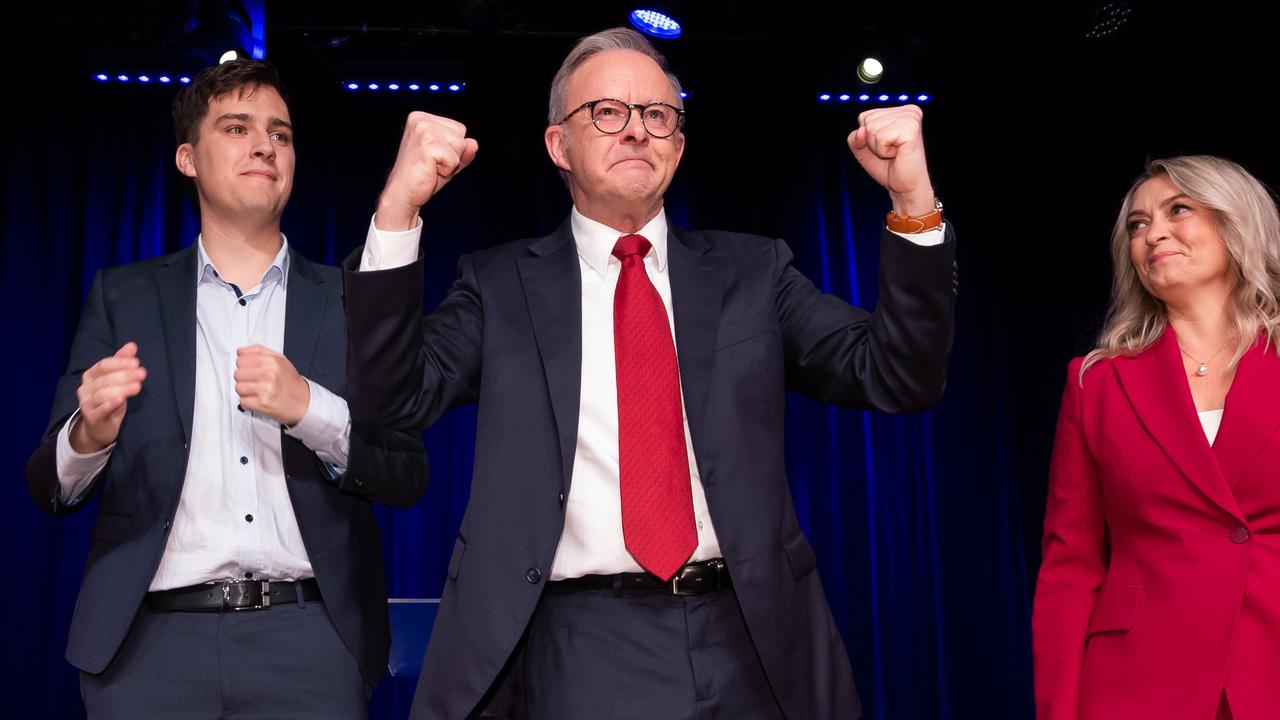
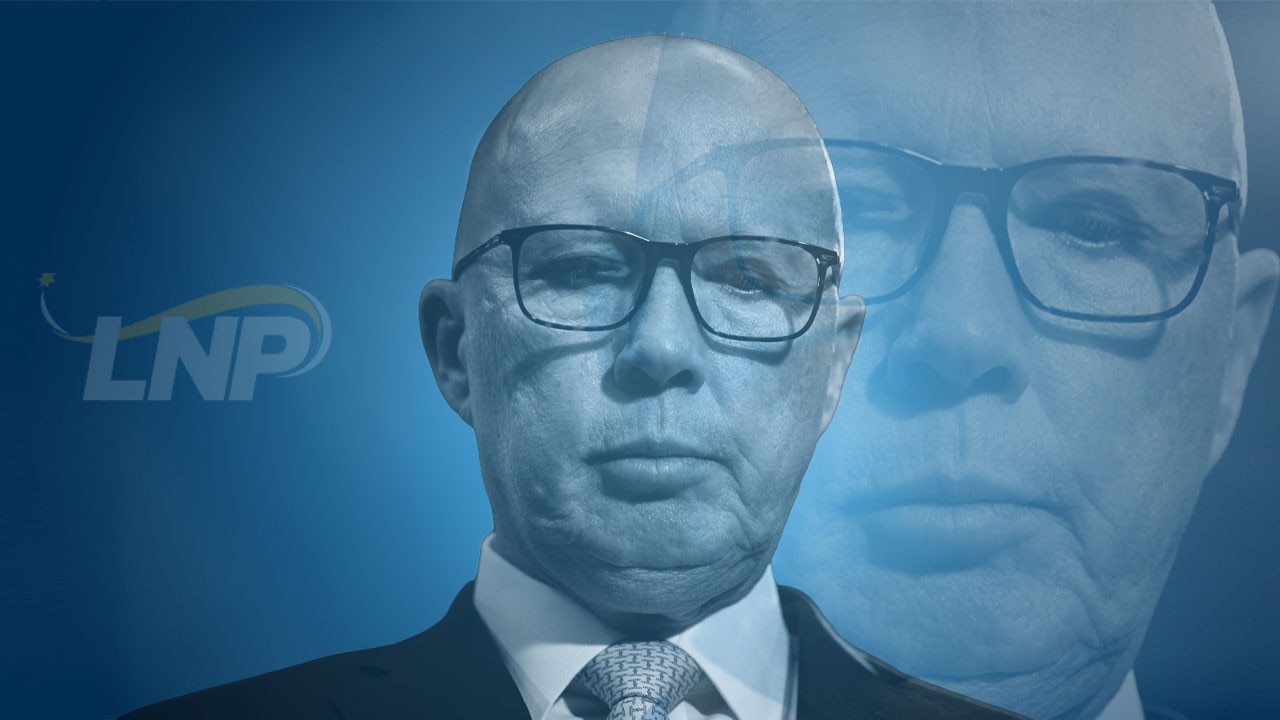
To join the conversation, please log in. Don't have an account? Register
Join the conversation, you are commenting as Logout